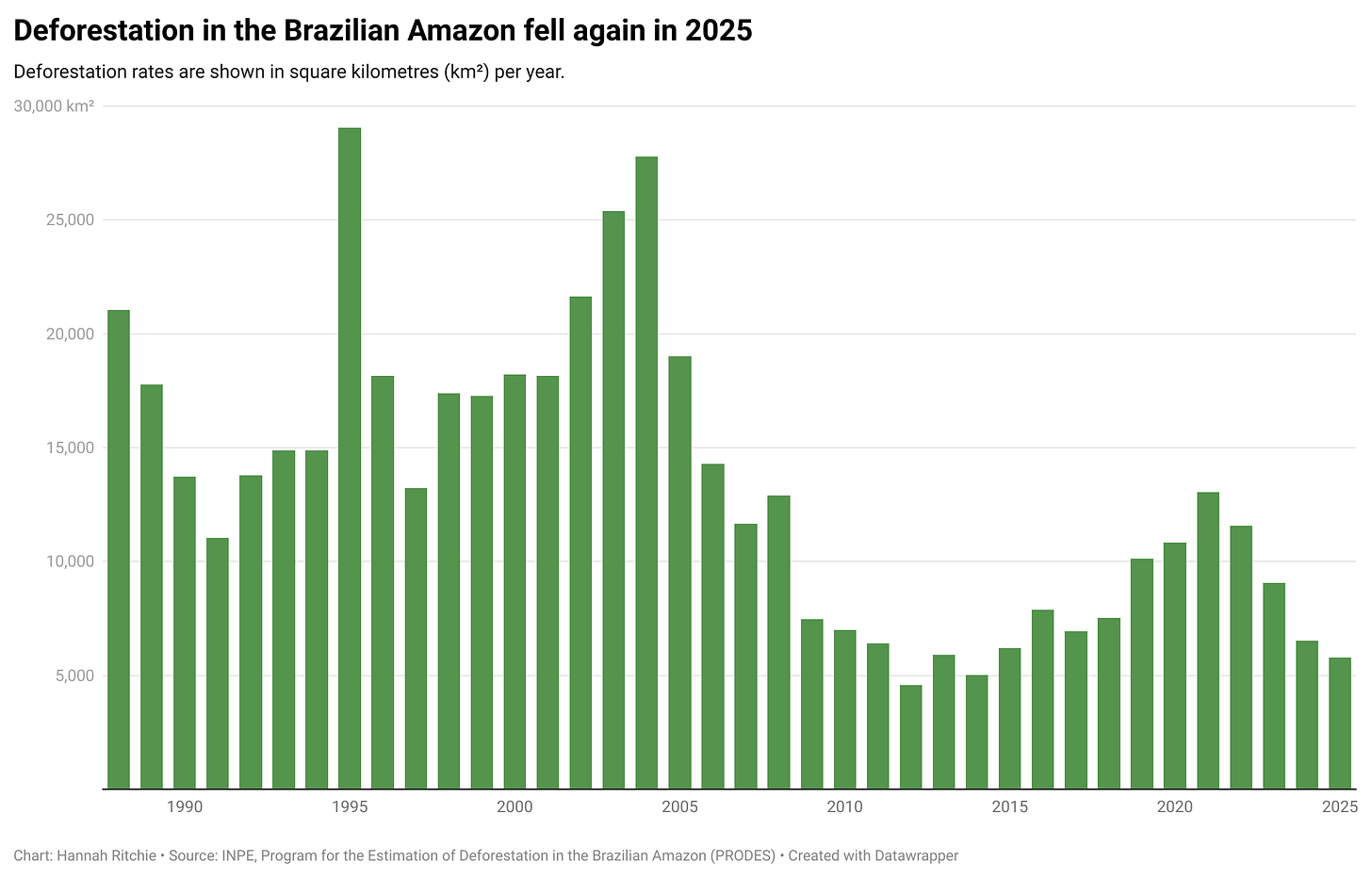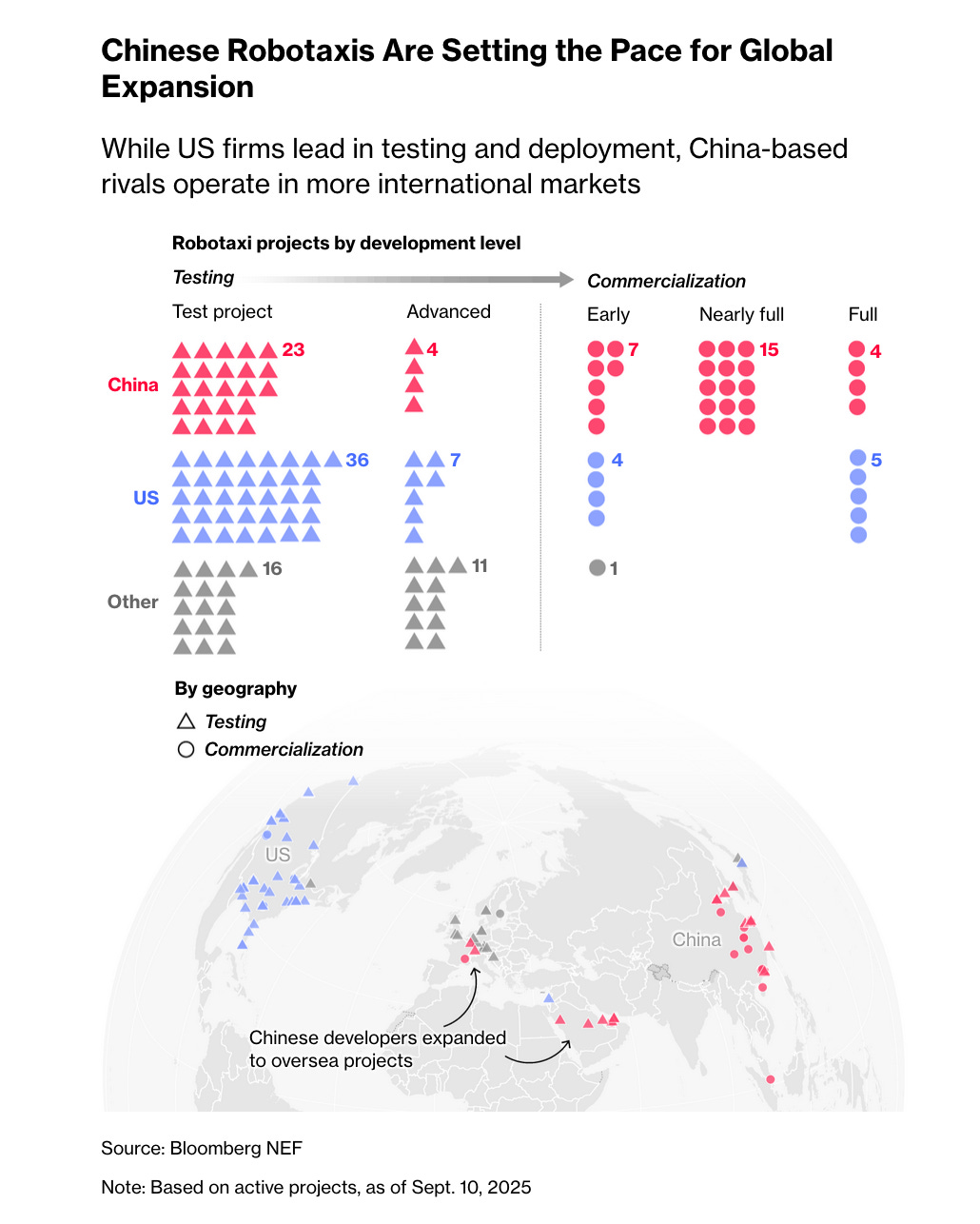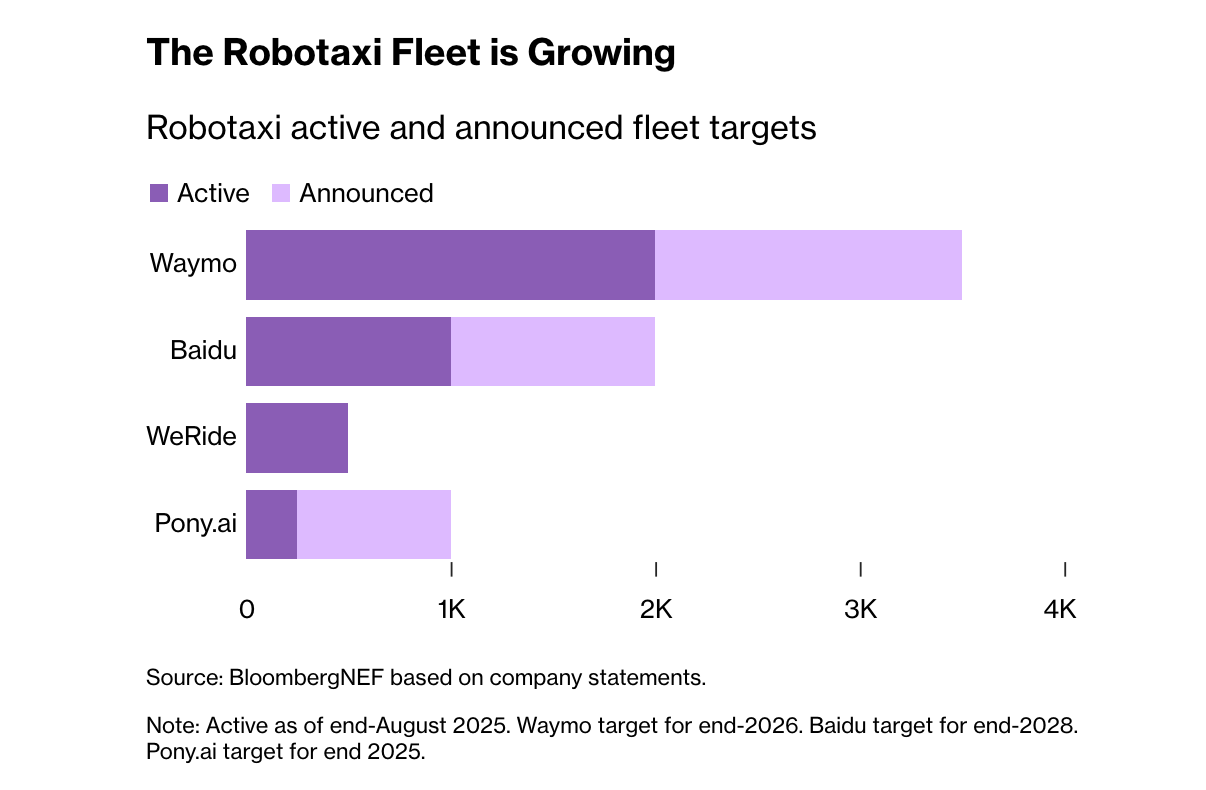Doomslayer: Progress Roundup
Declining Amazon deforestation, the first rigid airship in 86 years, new gene therapies for children, and more.
Economics & Development
According to estimates from the Spanish bank BBVA, more than one million Mexicans are out of multidimensional poverty thanks to remittances, or money sent home by relatives working abroad. Unfortunately, that progress may be slipping: the report also notes that remittances to Mexico had fallen for six consecutive months as of September.
Remittances and Our Freedom to Give
Remittances, the funds immigrants send to family members in their countries of origin, are under political fire. Many US policymakers favor taxing these payments and placing bureaucratic hurdles in the way of those trying to send money home.
Energy & Environment
Conservation and biodiversity
Deforestation in the Brazilian Amazon is slowing down. Around 5,800 square kilometers of the forest were cleared this year, down from 6,500 in 2024 and over 20,000 in 1988.
The nine-banded armadillo is proliferating and expanding its range across the Eastern US. According to a recently published analysis of armadillo sightings, the species, first recorded in the US in 1849, has now colonized 17 states and has been spotted as far north as Nebraska, Michigan, and Virginia.
Two Tongan islands, Kelefesia and Tonumea, have been cleared of invasive rats and pigs, and conservationists report that bird populations are beginning to recover.
Energy and natural resources
Chinese scientists have used a molten-salt reactor to breed uranium from thorium for the first time. This process converts thorium—far more abundant on Earth than uranium—into a usable fuel, and could also make future reactors safer, cleaner, and more efficient.
Scientists have engineered enzymes that can break down polyurethane, a notoriously durable plastic, into its component parts, potentially enabling efficient recycling.
Health & Demographics
Several high-end senior homes in New York City are using AI-powered motion sensors to detect and prevent falls—a leading cause of injury and death among the elderly. The sensors monitor movement, sleep, and vital signs to spot early warning signs and alert staff instantly. At one Upper East Side residence, falls dropped by 40 percent after the system was introduced.
This spring, a group of doctors used a personalized gene therapy to save an infant with a deadly genetic disorder. Their success has since cleared the way for a new trial to test similar therapies on more severely ill children. This research was made possible in part by greater regulatory leniency: the FDA will allow the team to reuse safety data from the first case, even as they tailor the treatments to each child’s unique mutation.
A major international trial has found that radiation offers no survival benefit for women with early-stage breast cancer who’ve already had mastectomy, lymph-node surgery, and modern drug therapy. In other words, thanks to medical innovation, fewer cancer patients need to endure the harsh side effects of radiotherapy.
Uganda appears to be making strides against its AIDS epidemic. According to the Uganda AIDS Commission, the agency responsible for tracking the disease, 90 percent of HIV-positive Ugandans are receiving antiretroviral therapy, and AIDS-related deaths have fallen by 64 percent since 2010.
Science & Technology
SpaceX has broken its own record for the number of yearly rocket launches, surpassing its 2024 total of 134 last weekend.
Sergey Brin’s airship startup, LTA Research, recently received FAA clearance to fly its massive helium-filled airship, the Pathfinder 1, over the San Francisco Bay. The 400-foot craft, built with a carbon-fiber and titanium frame and powered by electric motors, is the first rigid airship built in decades. The company hopes to use future versions for cargo and disaster-relief missions in remote regions.
Star Catcher Industries, a space-energy startup, has beamed a record 1.1 kilowatts of electrical power over a one-kilometer distance using lasers. The test marks an early step toward technology that could one day enable wireless power transfer between satellites.
Chinese scientists are using a genetically modified fungus to create highly effective mosquito traps. The engineered Metarhizium constantly releases a scent that draws mosquitoes into fungus-laced traps, where the spores infect and kill them. In lab tests, these traps killed 90 to 100 percent of mosquitoes. The researchers hope their fungus could offer a cheap, scalable alternative to chemical insecticides.
Competition between Chinese and American robotaxi companies is starting to heat up abroad, and Bloomberg has produced some interesting graphics and analysis comparing their progress.
Domestically, Waymo has announced its intention to bring robotaxi service to Las Vegas, San Diego, and Detroit, and the Chinese robotaxi company Pony.ai now has a permit to operate in Shenzhen.
On a final robotaxi note, despite recent headlines, self-driving cars are far safer for pets than human-driven ones.






Thanks for writing this, it's a truly thought-provoking read on our world's complex advancements and challanges.
would love your thoughts on some of my stuff. follow me back, I could DM you?